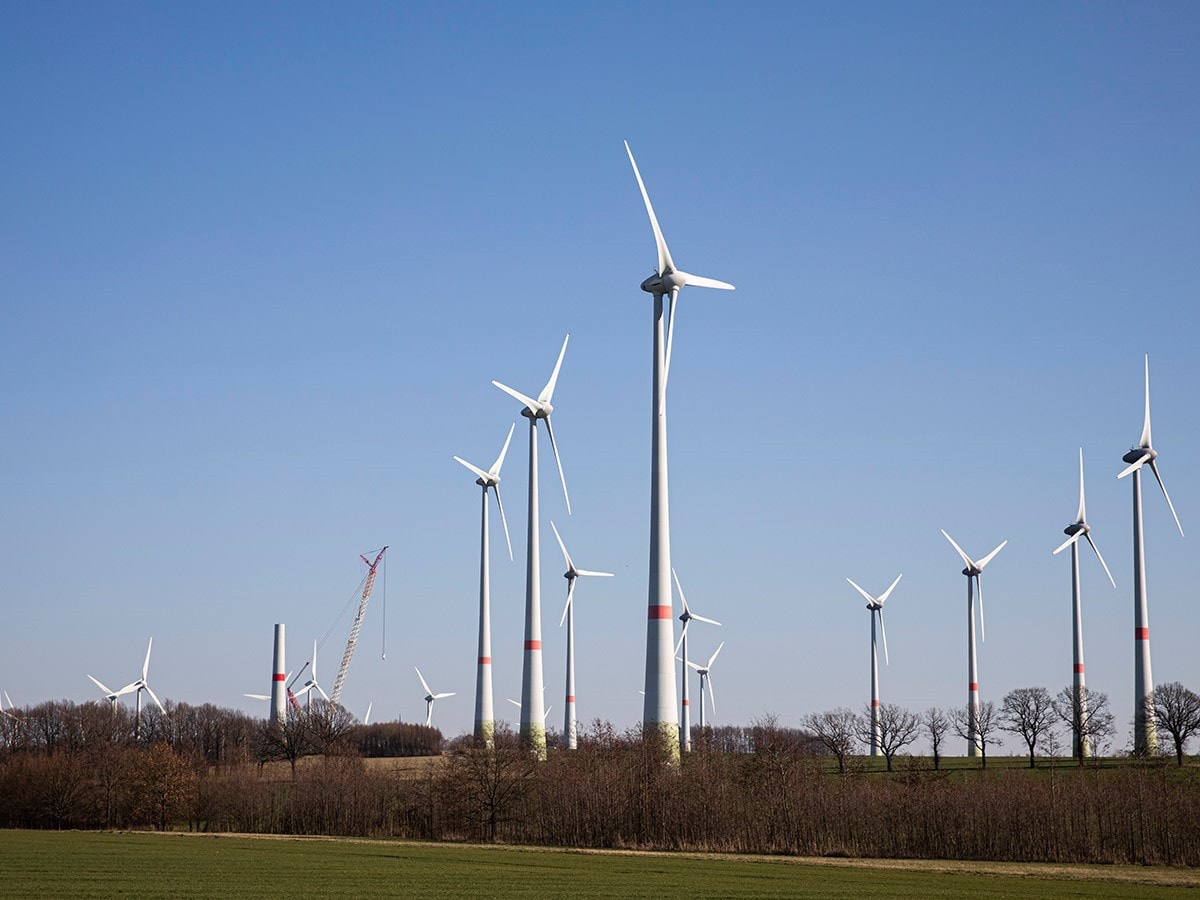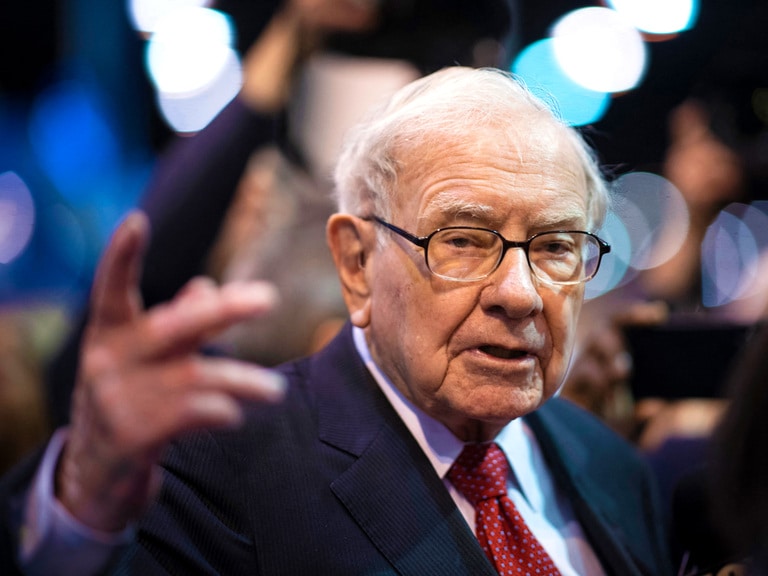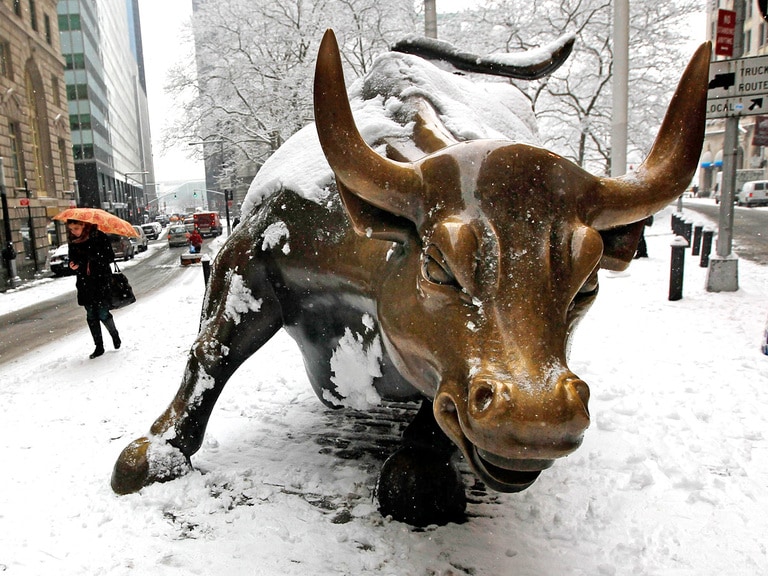The market for ethical or environmental, social and governance (ESG) exchange-traded funds (ETFs) is massive right now. Last year, assets invested in ESG ETFs hit an all-time high as more and more investors want investments that align with their core values. The biggest among them have well north of a billion dollars invested.
As the market for ethical investment grows, we look at what typically makes up an ESG ETF, how they’ve been affected by the coronavirus, and the ones to look out for.
What is an ESG ETF?
An ESG ETF is a way for investors to invest in something that can generate social good, not just financial gain. This is called "impact investing" and the plethora of available ETFs in this field help investors put money behind companies with a good track record on reducing carbon emissions and improving gender balance.
What makes up an ESG fund is also about what it excludes, so don’t expect to see alcohol, firearms or tobacco companies in the fund basket. However, tech companies like Facebook and Amazon feature heavily, even though they aren’t exactly controversy-free.
Like any other exchange-traded fund investors can buy and sell ESG ETFs on an exchange. For ethically-minded investors, they offer the added benefit of being transparent. Unlike a mutual fund, ETFs have to report holdings daily. A boon for investors concerned about how their money is being used.
How have ESG ETFs performed during the market downturn?
One question potential investors will want to know is how ESG funds have fared during the current coronavirus-triggered downturn. Chase de Vere founder and CEO Nigel Green told Investment Week: "Since the Covid-19 public health emergency upended the world, the latest broad analysis shows that ESG funds have typically continued to outperform [other funds]."
“Since the Covid-19 public health emergency upended the world, the latest broad analysis shows that ESG funds have typically continued to outperform [other funds]” - Chase de Vere founder and CEO Nigel Green
Morningstar analysis backs this up, with analysis showing that ESG ETFs “weathered the market downturn better than conventional ETFs” in three out of four categories.
However, one or two months might be too short a timeframe to judge ESG fund performance versus other funds. While the pandemic has been unfolding, oil prices have plummeted. Seeing as ESG funds typically exclude energy stocks, they will have been relatively unscathed by plummeting oil prices.
7 ESG ETFs to watch
The biggest: iShares MSCI KLD 400 Social ETF (DSI)
With over $1.7 billion in net assets, this is the largest fund in the category. It invests in companies with a stated commitment to social good or environmental issues. It steers clear of companies that make money from alcohol, tobacco or firearms.
| Year-to-date | -18.42% |
| 2019 | 31.27% |
| 1 year | -6.01% |
| Since inception | 6.65% |
| MSCI ESG Quality Score | 7.3 |
| Top 3 holdings | Microsoft, Facebook, Alphabet |
Europe’s best performer: iShares MSCI Europe SRI UCITS ETF (ACC)
The iShares MSCI Europe SRI UCITS ETF (Acc) topped Just ETF’s list of best performing ESG ETFs for the 12 months up to 30 April 2020. The fund screens out companies with exposure to fossil fuels through extraction and other activities.
| Year-to-date | -13.15% |
| 1 year | -3.32% |
| Since inception | 69.76% |
| MSCI ESG Quality Score | 8.81 |
| Top 3 holdings | Roche, Novo Nordisk, ASML |
For US stocks: iShares ESG MSCI USA Leaders ETF (SUSL)
Started in June 2019, this fund tracks US large and medium caps and was up 21.7% since inception at the beginning of February. While it's taken a hit due to the coronavirus, it could be worth considering if the US economy starts to kick back into gear.
| Year-to-date | -18.43% |
| 2019 | 11.5% |
| 1 year | N/A% |
| Since inception | -6.83% |
| MSCI ESG Quality Score | 7.4 |
| Top 3 holdings | Microsoft, Alphabet, Johnson & Johnson |
The emerging markets: iShares ESG MSCI EM Leaders ETF (LDEM)
The iShares ESG MSCI EM Leaders ETF might be less than six months old, but it's already seen huge inflows of cash with Finnish pension-provider IImarien pumping $650 million into the fund. A good sign as Ilmarien has a track-record backing high-performing ESG ETFs. This ETF tracks large- and mid-caps in emerging markets, with its top holdings coming from Asia.
| Year-to-date | -23.76% |
| 2019 | N/A |
| 1 year | N/A |
| Since inception | -23.76% |
| MSCI ESG Quality Score | 6.7 |
| Top 3 holdings | Tencent, Taiwan Semiconductor Manufacturing, Alibaba |
For gender diversity: SPDR SSGA Gender Diversity Index ETF (SHE)
This gender-diversity fund tracks the 1000 major companies in the US, looking at the ratio of men and women in senior positions. Of those, it invests in only the top 10%.
| Year-to-date | -13.1% |
| 1 year | -6.61% |
| Since inception | 8.13% |
| MSCI ESG Quality Score | 5.23 |
| Top 3 holdings | PayPal, Johnson & Johnson, Visa |
For low emissions: iShares MSCI ACWI Low Carbon Target ETF (CRBN)
One for the environmentally-minded, this fund filters companies based on their greenhouse emissions. The fund leans heavily on tech companies, although it also invests in Visa and Johnson & Johnson.
| Year-to-date | -21.10% |
| 2019 | 27.1% |
| 1 year | -10.16% |
| Since inception | 3.31% |
| MSCI ESG Quality Score | 6.0 |
| Top 3 holdings | Apple, Microsoft, Amazon |
For clean energy: iShares Global Clean Energy ETF (ICLN)
The iShares Global Clean Energy ETF gives investors access to the clean energy sector, including wind power, solar power and renewable energy. The fund has a global outlook giving a broad exposure to the sector.
| Year-to-date | -21.10% |
| 2019 | 43.81% |
| 1 year | 0.12% |
| Since inception | -11.19% |
| MSCI ESG Quality Score | 6.7 |
| Top 3 holdings | Enphase Energy, Solaredge Technologies, First Solar |
Leveraged ETFs are complex financial instruments that carry significant risks. Certain leveraged ETFs are only considered appropriate for experienced traders.
Disclaimer Past performance is not a reliable indicator of future results.
CMC Markets is an execution-only service provider. The material (whether or not it states any opinions) is for general information purposes only, and does not take into account your personal circumstances or objectives. Nothing in this material is (or should be considered to be) financial, investment or other advice on which reliance should be placed. No opinion given in the material constitutes a recommendation by CMC Markets or the author that any particular investment, security, transaction or investment strategy is suitable for any specific person.
The material has not been prepared in accordance with legal requirements designed to promote the independence of investment research. Although we are not specifically prevented from dealing before providing this material, we do not seek to take advantage of the material prior to its dissemination.
CMC Markets does not endorse or offer opinion on the trading strategies used by the author. Their trading strategies do not guarantee any return and CMC Markets shall not be held responsible for any loss that you may incur, either directly or indirectly, arising from any investment based on any information contained herein.
*Tax treatment depends on individual circumstances and can change or may differ in a jurisdiction other than the UK.
Continue reading for FREE
- Includes free newsletter updates, unsubscribe anytime. Privacy policy





